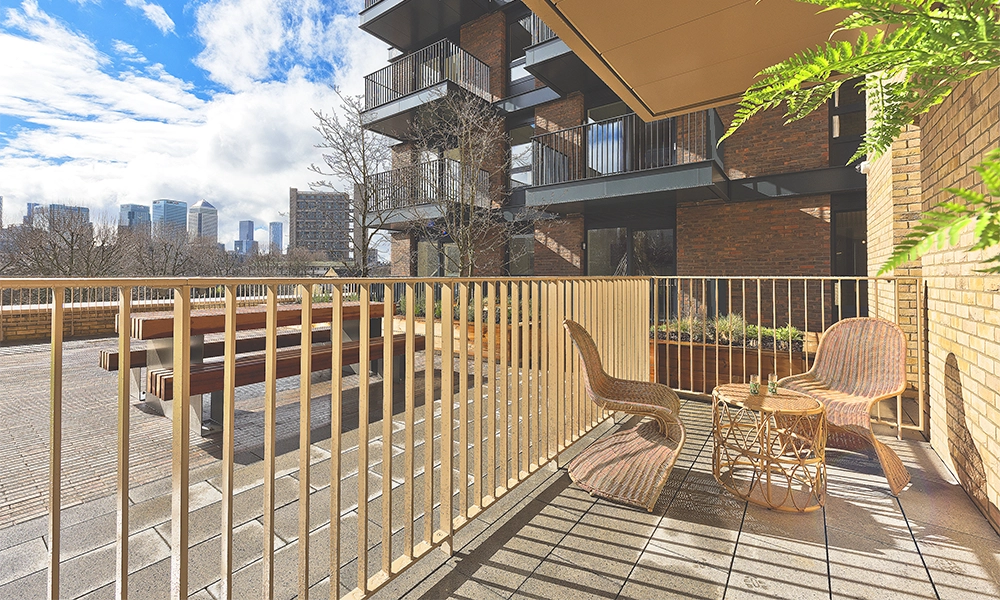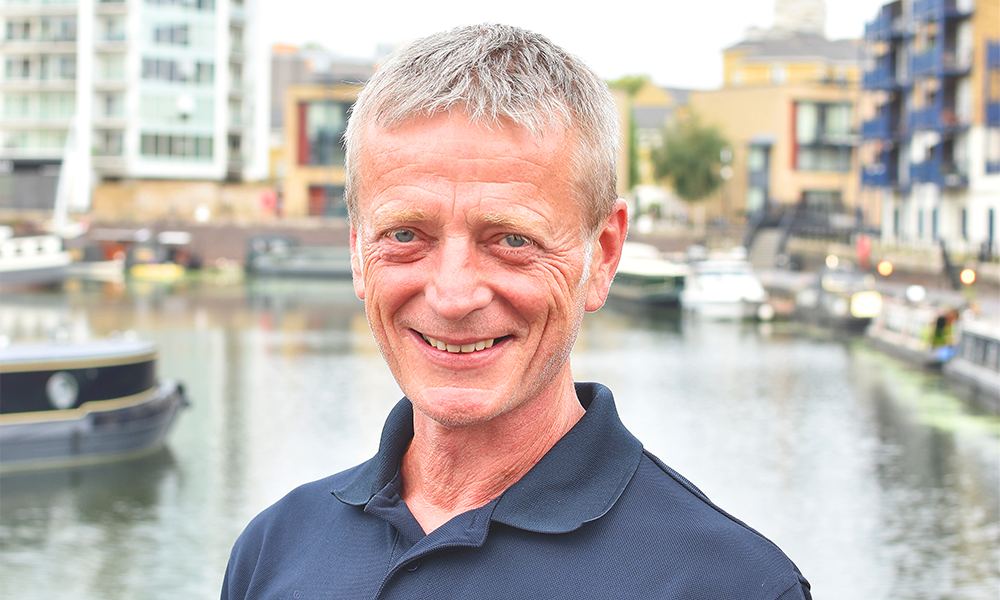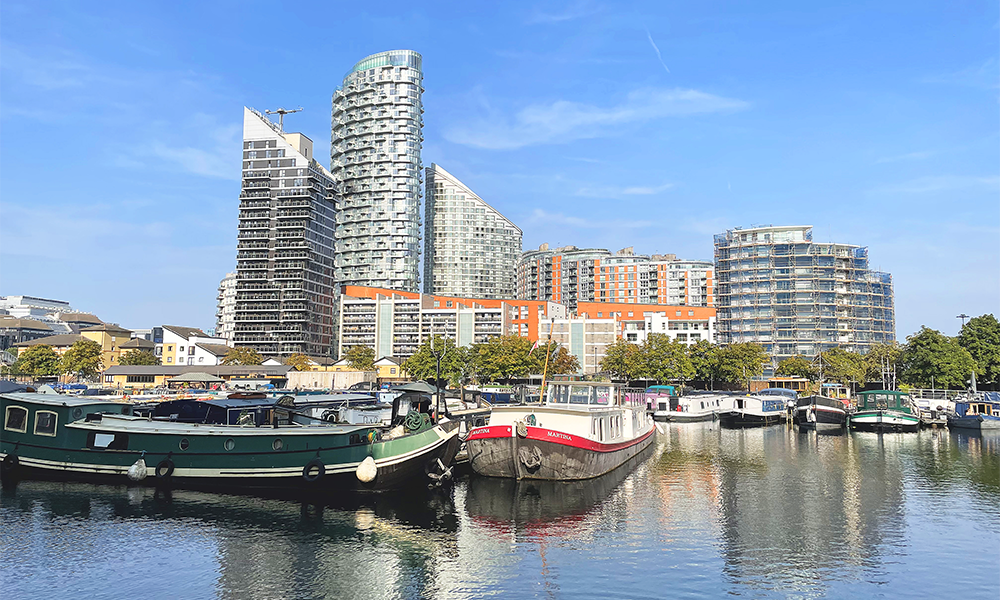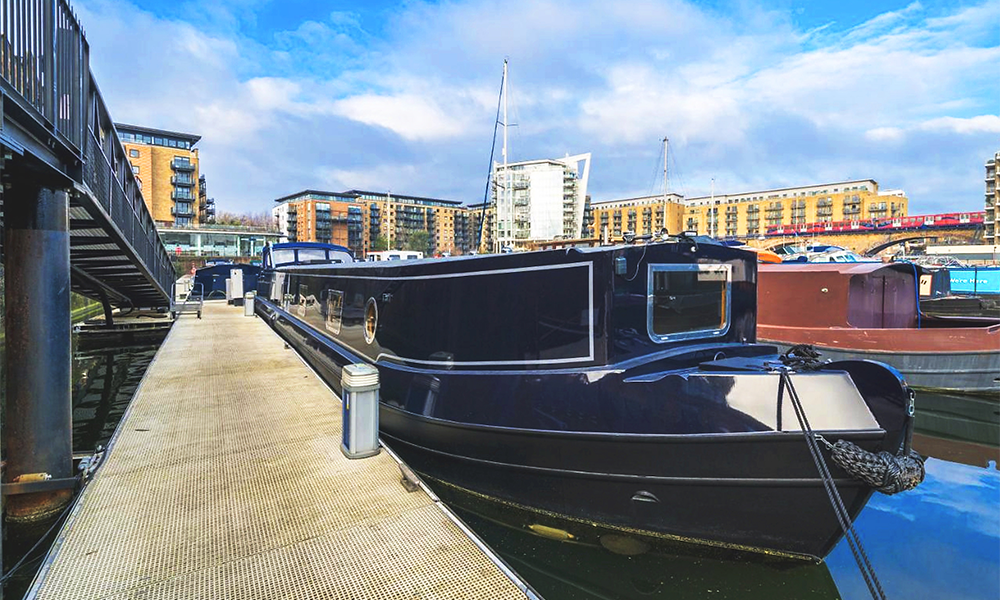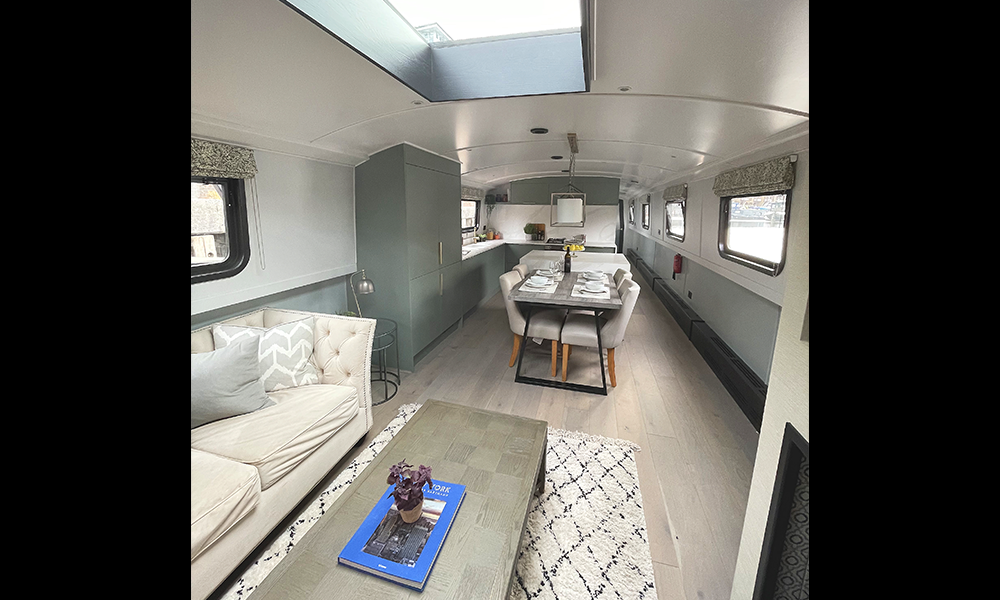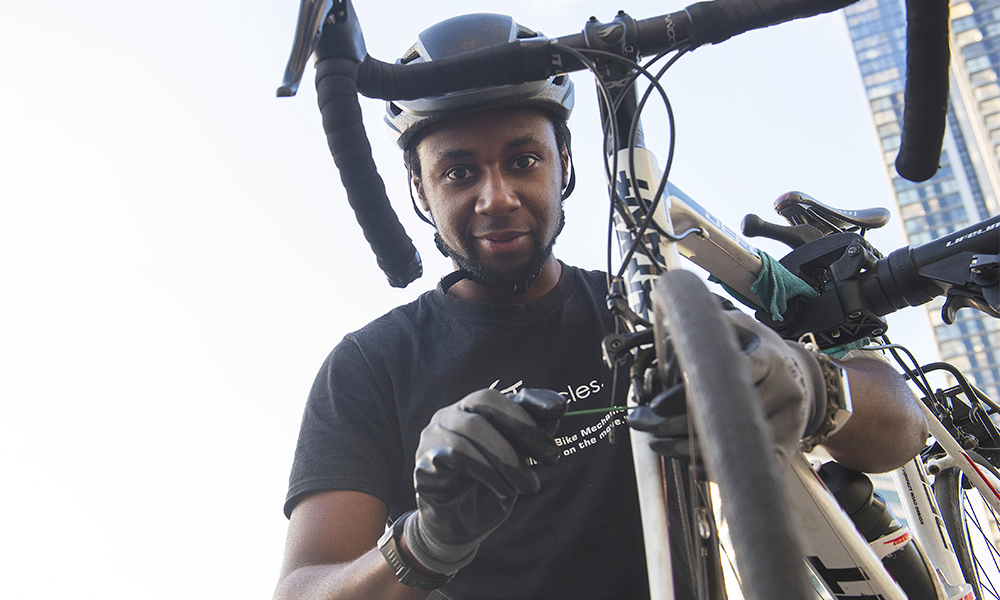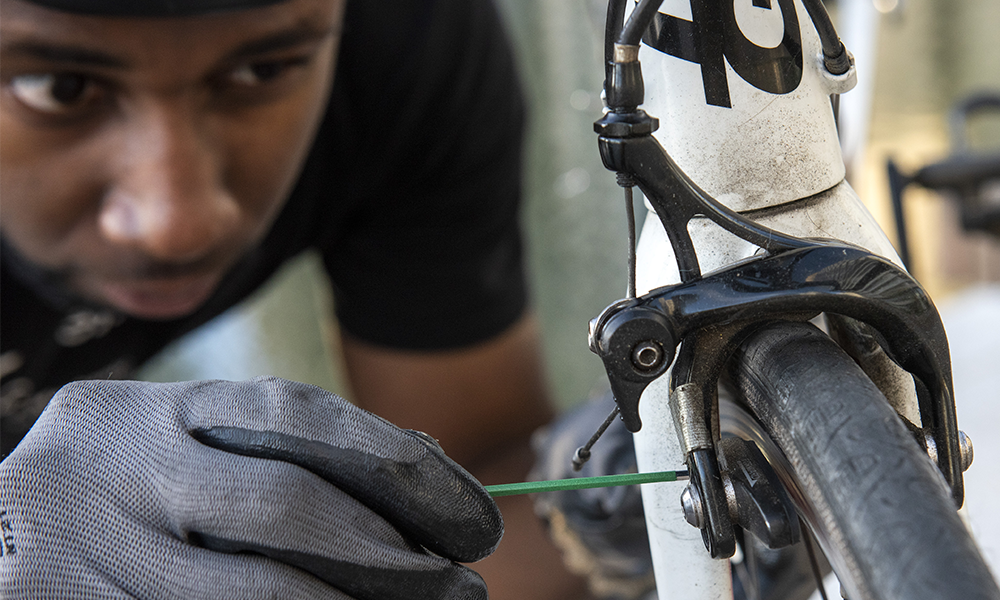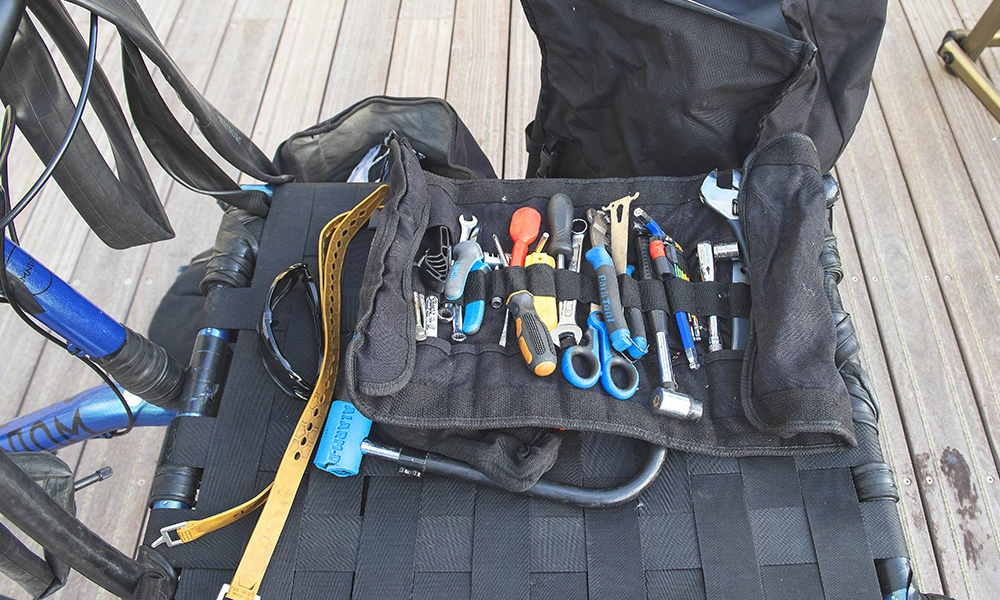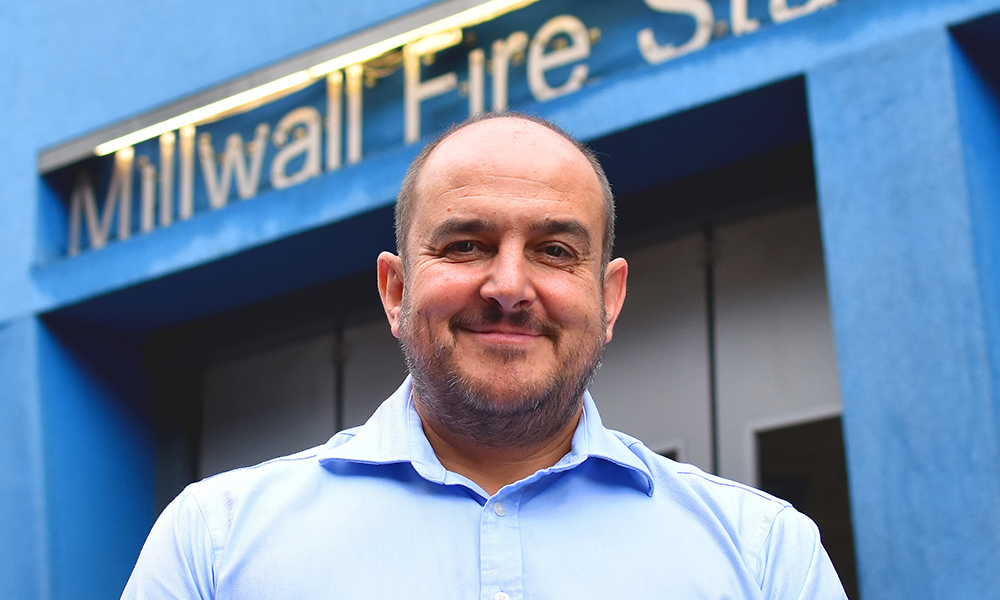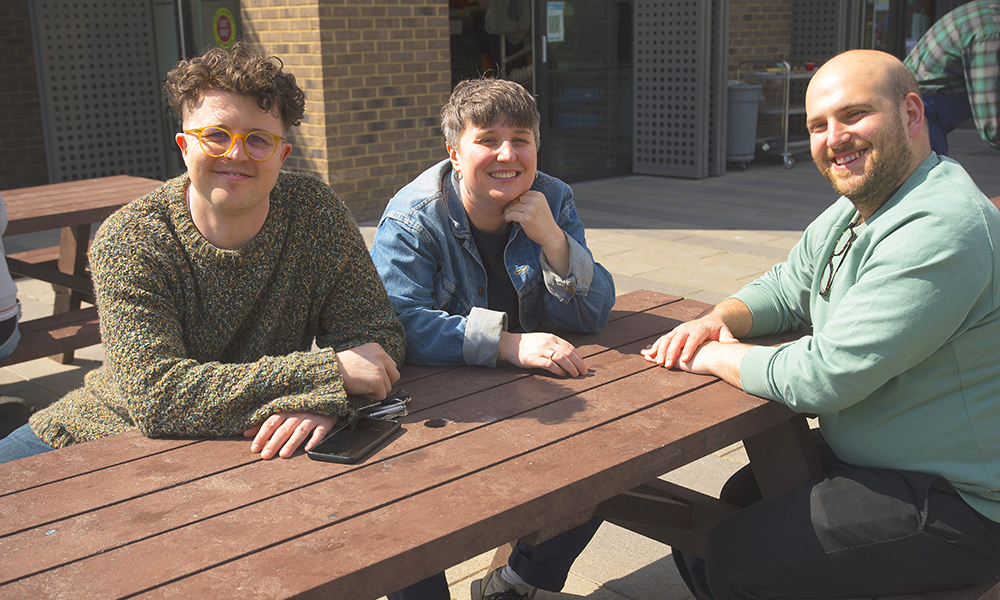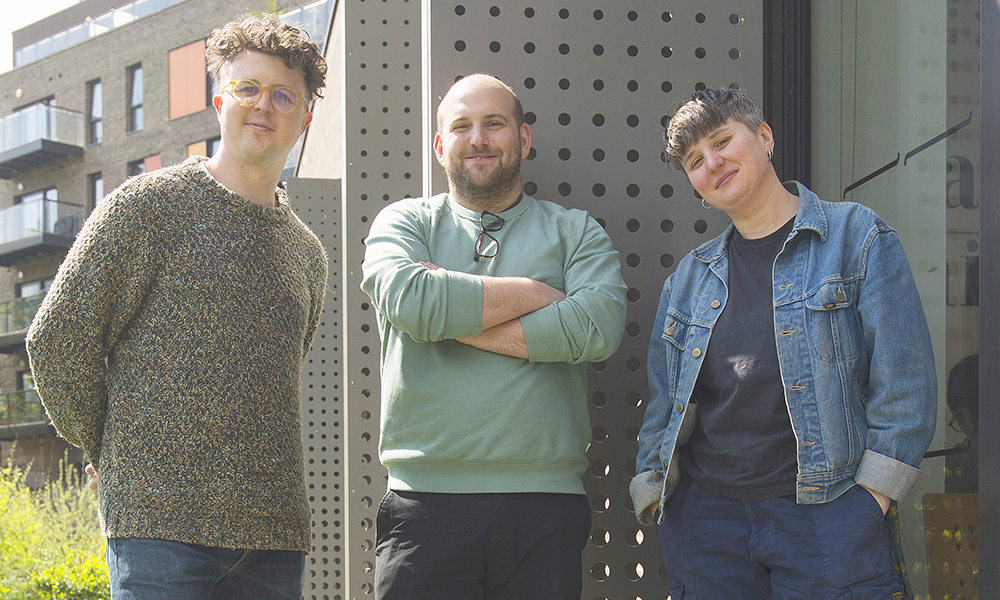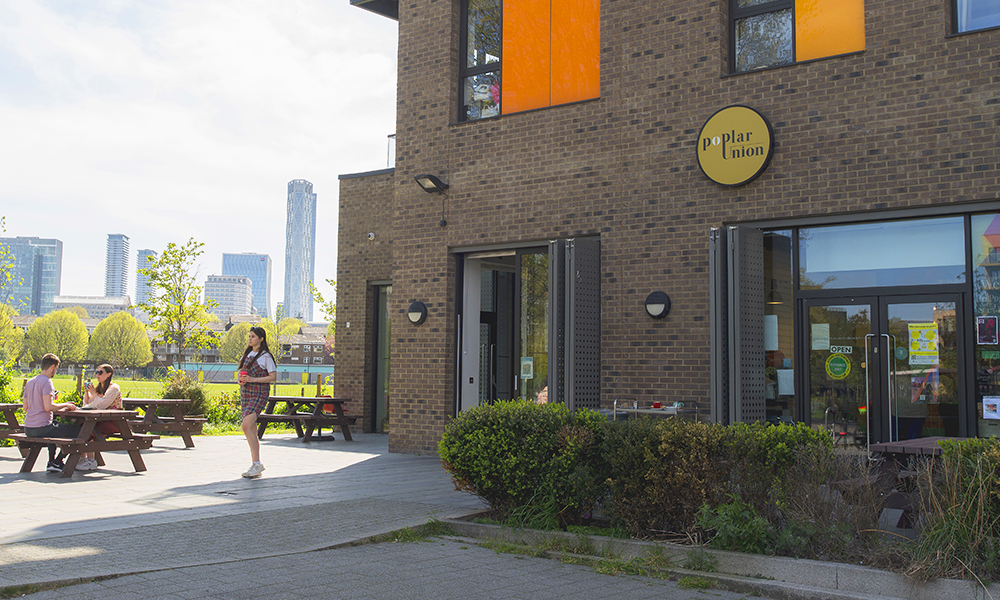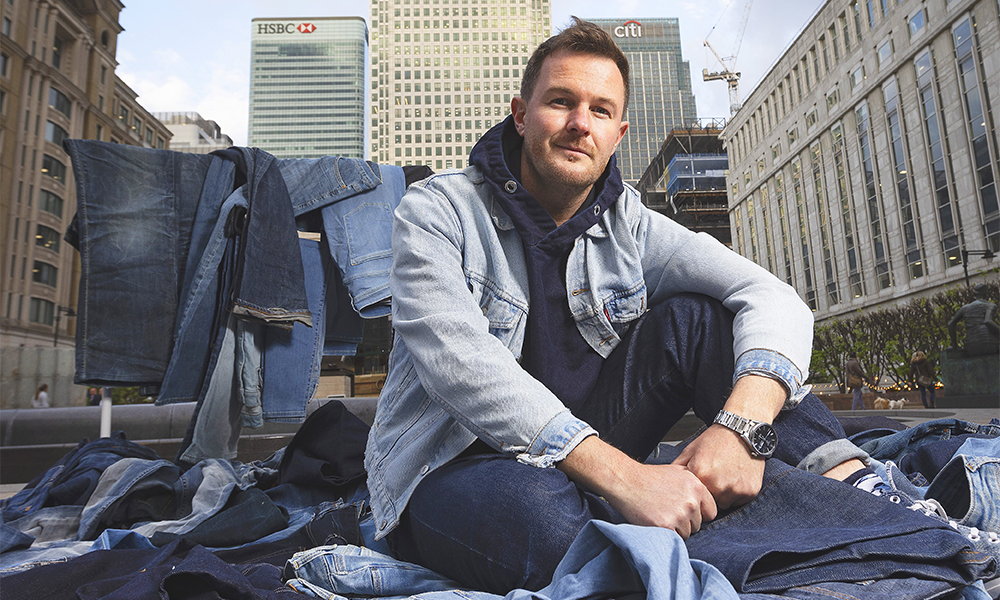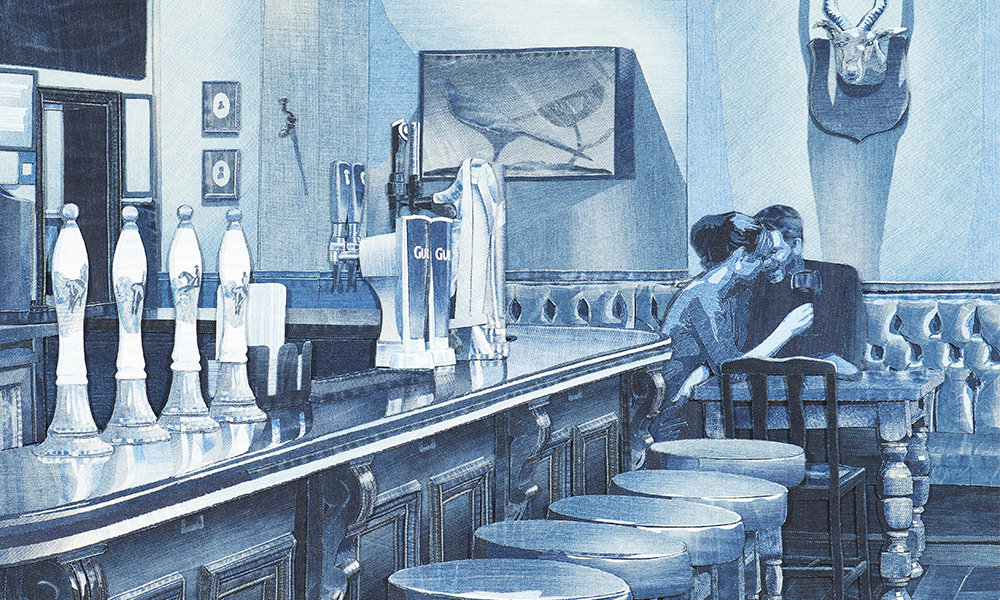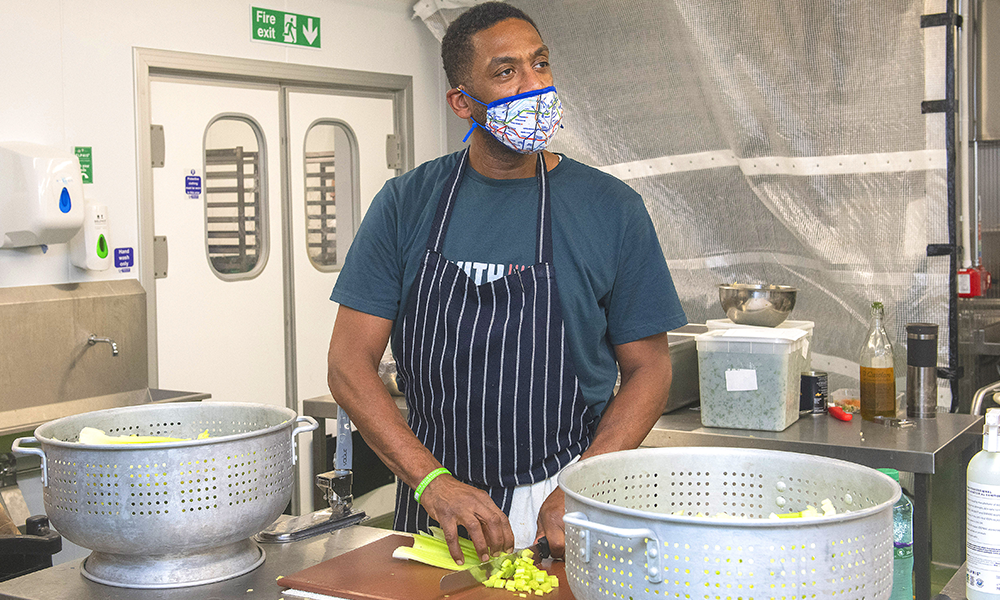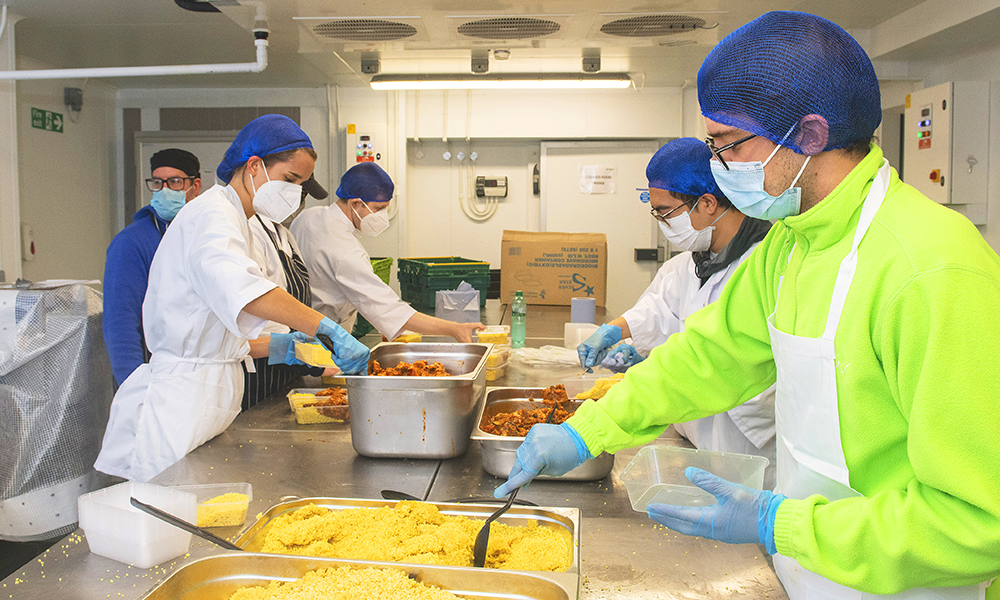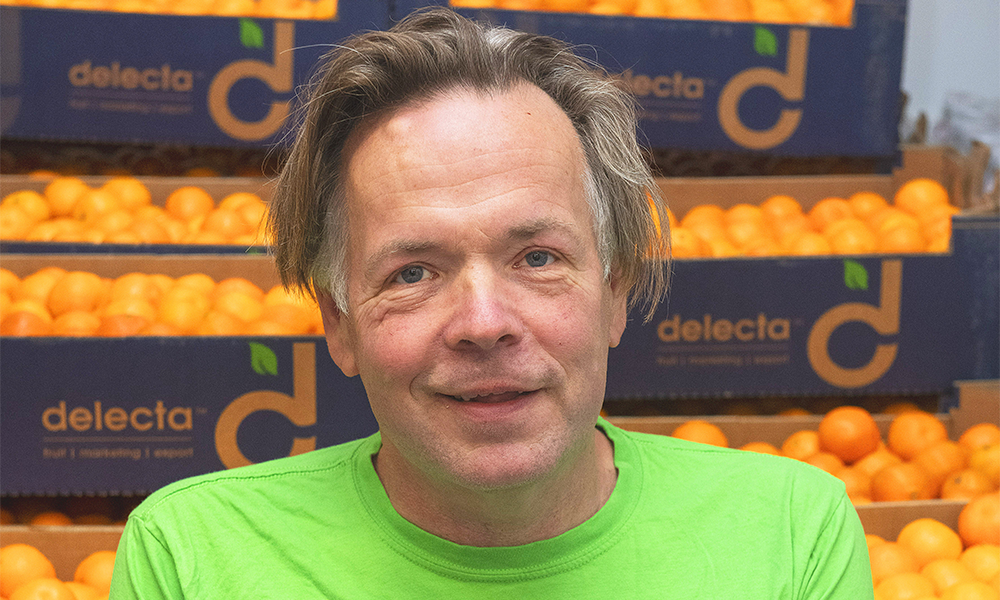The arts and community space is set to launch a new venture on the northern edge of Bartlett Park
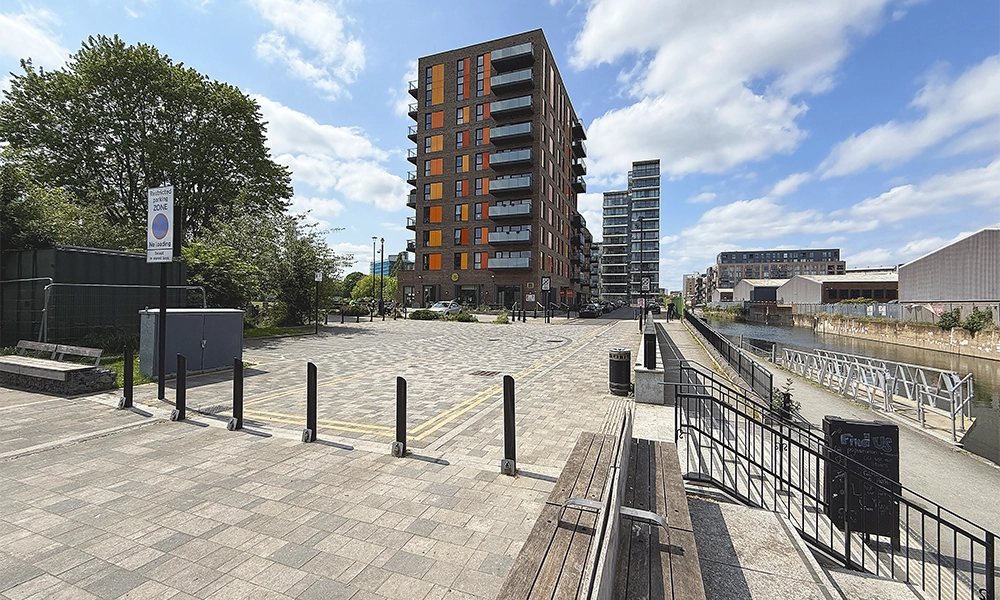
Subscribe to our free Wharf Whispers newsletter here
On the northern edge of Bartlett Park, running along the edge of the Limehouse Cut canal, sits a vacant stretch of land.
This length of Cotall Street is fully pedestrianised – an expanse of under-used space paved in grey stone with its own waterside benches.
For nearby arts and community space, Poplar Union, it’s also an opportunity.
The charity is in the process of setting up a new market with the aim of providing extra income for its operations and a platform for entrepreneurs and creatives on a weekly basis.
“For many people in this area it’s difficult to get to a market, so why not have our own,” said Nahimul Islam, director of commercial enterprise at Poplar Union, who is leading the project.
“This organisation is a charity, but we have to think of ourselves as a sustainable business.
“Much of what we deliver is free of charge or heavily subsidised and it’s challenging to meet our costs and maintain the building.
“So we decided to come up with creative ideas to bring in revenue.
“It’s a win-win situation, with the income generated going straight back into the community.”
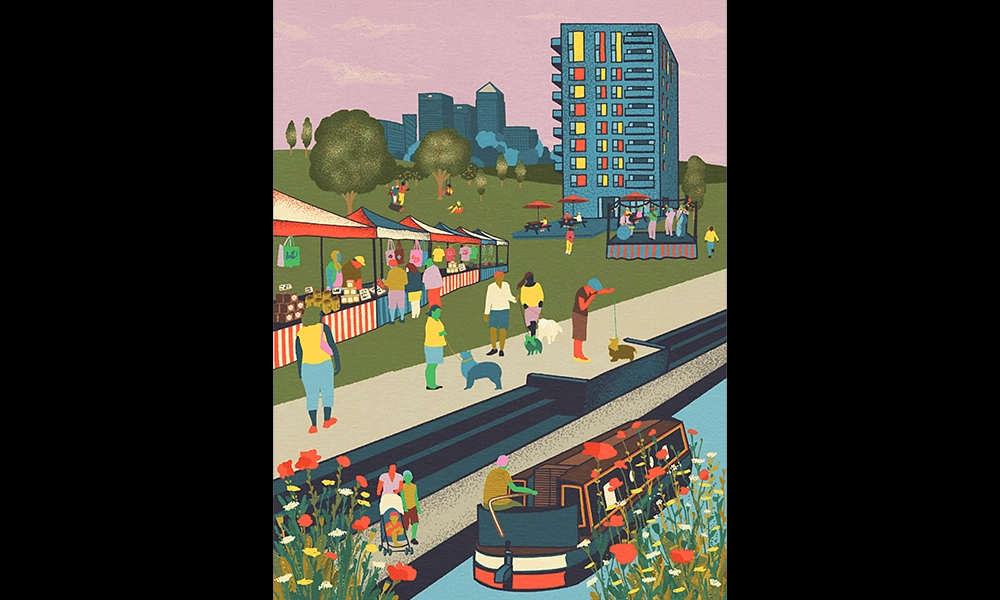
a new market supporting Poplar Union
Cotall Street Market is expected to soft launch in June, 2025, with an official opening later in the summer.
It will take place during the day on Saturdays, with an ambition to offer food, drink, fresh produce and arts and crafts as well as entertainment to local residents.
It’s currently inviting traders who would like to participate to get in touch as it works up to opening.
“We want to make this a vibrant, community-driven market for entrepreneurs – established, brand new and aspiring,” said Nahimul.
“We’re creating a platform where people will trade for themselves while also supporting the community – a place for them to share their culture and experiences.
“I’d love to have different sections of the market – hot food, cold food, fresh produce and a massive craft section for artists to showcase their work.
“I’m a great believer in that because everyone’s work has a story and having the creator there to tell it is so important.
“We also want lots of music, for the market to be multicultural and diverse – a place where people feel at home.
“It’s a form of education really – a place to try food from different cultures and learn about what ingredients, spices and cooking methods people use.”

a business mindset
Nahimul himself has experience as an entrepreneur.
Born in Wapping, with a background in youth work, he co-founded Muscle Basin gym in Shadwell, which has since relocated to Stratford.
As such he’s clearly passionate about using his experience and skills to help others create businesses and to help other organisations.
“I realised community groups and charities were really struggling to generate income,” he said.
“Relying on grants isn’t always the best way to progress, so I reinvented myself to help them build revenues.
“I’ve been working with Poplar Union for a year now and am looking forward to growing its income.
“We want people to travel from afar to check this market out – for it to become a place that’s talked about.
“Then we want its expansion to be organic.
“The park is a great space – people will be able to get their food and then enjoy it on the grass and there aren’t many places you can do that around here.
“Tower Hamlets hasn’t always been seen as the greatest place to live in London, but I’m sure the outlook and vibe we create with this market will help to change what people think.
“In the future, we also plan to host events at Poplar Union when the market is on – we want people to come inside and enjoy what’s on offer here, to take part in the free and subsidised activities.
“We want as many people as possible to discover us and what we offer, to come and use this space.
“We’re trying to break down financial barriers, providing things that people may not be able to afford like music lessons, so we want them to be subsidised.
fostering ambition
As part of the Cotall Street Market plans, Nahimul and the team are also seeking sponsors to support pitches at the market for young entrepreneurs.
“It’s important that we look to the new generation to make their futures brighter,” said Nahimul.
“We’d love to create a section of the market for young people to come and trade for free – an entrepreneurial hub for local people.
“We’re looking for support to help establish that and would love to hear from businesses and organisations.”
key details: Cotall Street Market by Poplar Union
Poplar Union plans to host Cotall Street Market weekly on Saturdays from 10am to 4pm. Pitch prices will vary by space between £50 and £125 depending on size and service requirements.
There is some degree of flexibility on rates for new ventures.
The charity is currently welcoming expressions of interest from food vendors, artists and makers, suppliers of fresh produce and local businesses and community groups that would like to get involved.
The aim is to open the market for a soft launch on June 14, 2025, with an official opening later in the summer.
Find out more about the plans here
Read more: Lina Stores is set to open its doors in Canary Wharf




